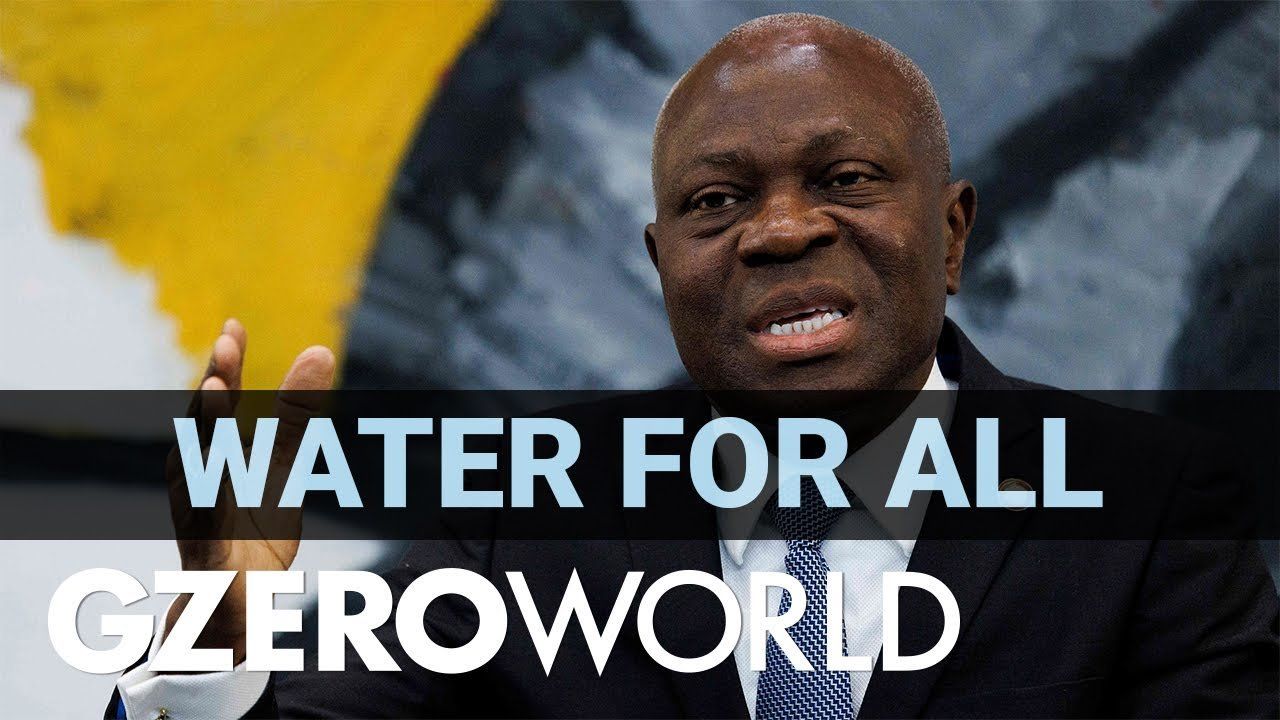GZERO World Clips
Water isn’t “free” - but it shouldn’t be private

Water isn’t “free” - but it shouldn’t be private | GZERO World

UN-Water Chair Gilbert Houngbo remembers being a college student in the late 70s, when people first started saying water should be treated as a public good. Today, we're still having that same conversation, but now, groups like UN-Water are working to make it a reality.
On GZERO World with Ian Bremmer, Houngbo emphasizes the importance of policies that ensure access to basic water services, encourage water reuse, and minimize the risk of pollution. It's easy to think water is free and we don't need to take care of it, says Houngbo, "but this has to stop."
The former Prime Minister of Togo also touches on "the sensitive issue of privatization of water services" and the potential impact it can have on "inequality and efficiency." Well-managed water services are a good thing, Houngbo notes, but privatization shouldn't mean the price of water automatically goes up.
Despite the double-edged sword of privatization, he suggests that it "can be effective if accompanied by government regulations" to ensure that vulnerable populations have access to water and that private companies adhere to quality and safety standards.
Watch the GZERO World episode: The uncomfortable truth about water scarcity
In this Quick Take, Ian Bremmer weighs in on the politicization of the Olympics after comments by Team USA freestyle skier Hunter Hess sparked backlash about patriotism and national representation.
100 million: The number of people expected to watch the Super Bowl halftime performance with Bad Bunny, the Puerto Rican superstar and newly minted Album of the Year winner at the Grammys.
Brazilian skiers, American ICE agents, Israeli bobsledders – this is just a smattering of the fascinating characters that will be present at this year’s Winter Olympics. Yet the focus will be a different country, one that isn’t formally competing: Russia.
Japanese Prime Minister Sanae Takaichi, president of the Liberal Democratic Party (LDP), appeals for a candidate during a street speech of the House of Representatives Election Campaign in Shintomi Town, Miyazaki Prefecture on February 6, 2026. The Lower House election will feature voting and counting on February 8th.
Japanese voters head to the polls on Sunday in a snap election for the national legislature’s lower house, called just three months into Prime Minister Sanae Takaichi’s tenure.